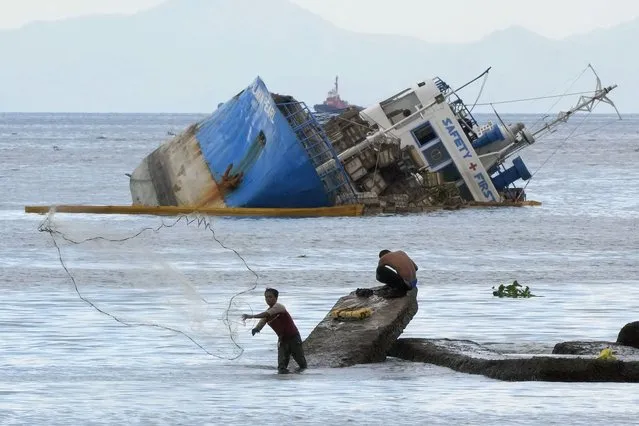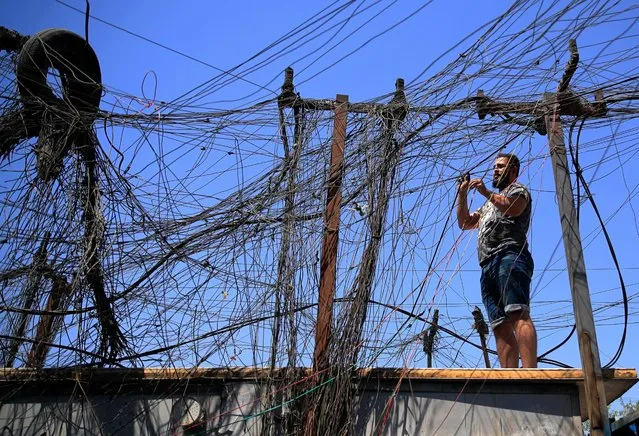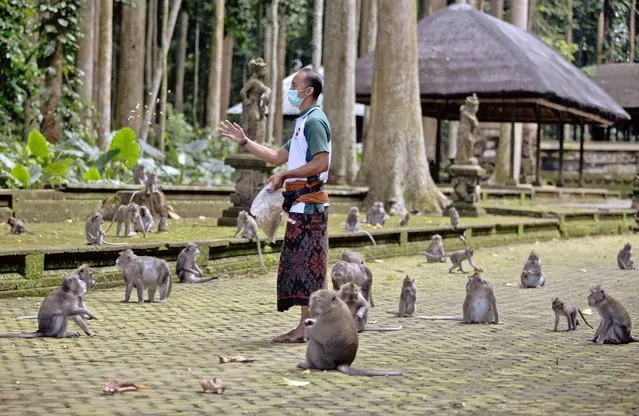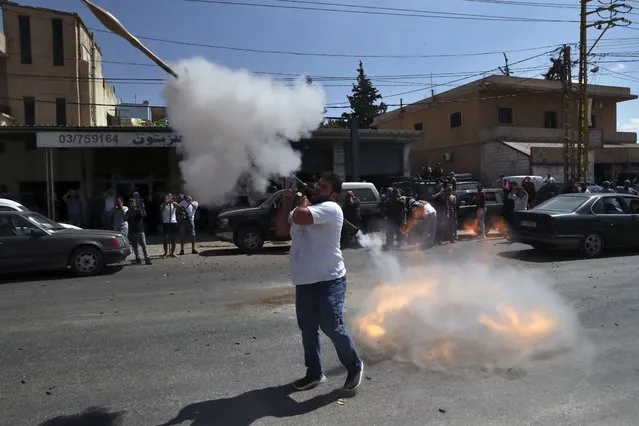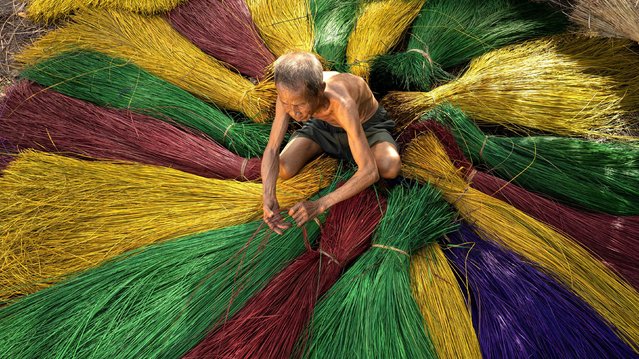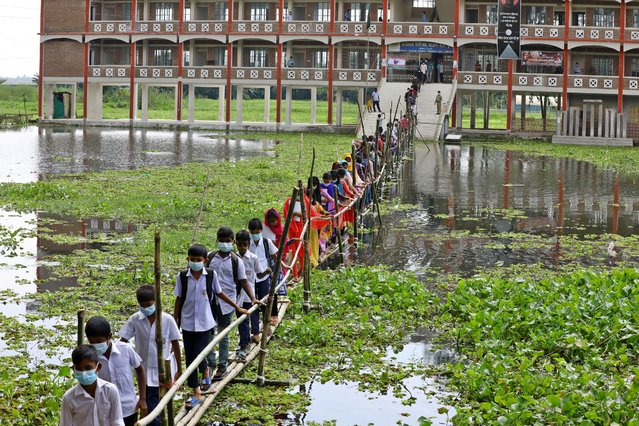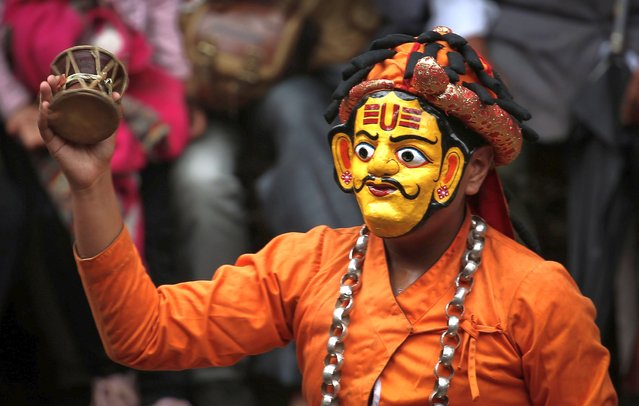
A masked dancer performs as part of “Devi Pyankha” (Devi Dance) to mark the beginning of the Indra Jatra Festival in Kathmandu, Nepal on September 15, 2021. Nepali celebrate the Indra Jatra festival to worship “Indra”, the god of rain and to mark the end of monsoon season. (Photo by Sunil Sharma/ZUMA Press Wire/Rex Features/Shutterstock)
23 Sep 2021 08:21:00,post received
0 comments


